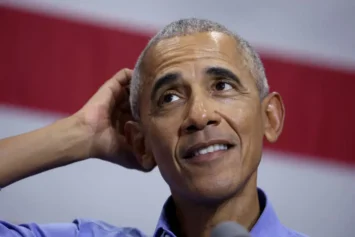
With a spate of controversial new voting restrictions in states like Texas and North Carolina, election experts are waiting to see if the efforts will have the same results in the midterm elections, when the electorate tends to be older and whiter, thus substantially favoring Republican candidates. North Carolinians will go to the polls tomorrow in that state’s primary for the first time since new voting restrictions were passed.
Groups that have been opposing the new voter restrictions got a big boost last week when a federal judge in Wisconsin struck down a law passed by that state’s Republican legislators that would have made voting harder by requiring state-approved photo identification at polling places.
Ironically, the decision came down on the same day that Donald Sterling, the owner of the Los Angeles Clippers, was banned from the NBA for life for his racism comments—thus ensuring that the Wisconsin case would receive little attention.
These voter restrictions have been a growing movement among Republicans politicians over the last three years, with more than 30 states passing new laws to restrict voting. The laws are usually approved under the guise of preventing voter fraud—though they are usually unable to come up with evidence of a single instance of such deception.
“We’re in the most intense national struggle over voting since the 1960s,” Wendy R. Weiser, who directs a program for the Brennan Center for Justice, a liberal advocacy group, told the New York Times.
The U.S. Supreme Court emboldened some states last year in a decision that weakened enforcement of the Voting Rights Act.
In Texas and North Carolina, Republicans aren’t letting up, introducing new laws they say are necessary to stop voting irregularities. As pointed out by Al Jazeera America, a license to carry a concealed gun is deemed a legitimate form of photo identification in Texas, but not a student ID.
According to a study commissioned by the Brennan Center, in some heavily Hispanic areas in Texas, the state offices that issue photo IDs are open only a day or two a week, such as in Cotulla, a small town in rural South Texas, where the nearest office to obtain state-issued photo IDs is open once a week and is an hour’s drive away.
North Carolina has gone further than the photo IDs by also curbing registration drives for young voters and cutting back early voting by one week. African-Americans are more likely than whites to use early voting.
Not only have groups like the ACLU and the NAACP taken on the fight against these laws, but the Obama administration is bringing legal action against North Carolina and Texas. In a swing state like North Carolina, even a small reduction in the African-American turnout could have a big impact. When two professors studied the possible impact of reducing early voting, they concluded that removing a week from the schedule could drive at least 18,000 potential voters to give up in frustration. It should be noted that Obama carried North Carolina by 14,000 votes in 2008. Romney won the state in 2012.
North Carolina will get a test of its new voting laws in tomorrow’s primary election, when voters will choose local officials as well as nominees for Senate and congressional races. North Carolinian Thom Tillis, Speaker of the state House and the leading GOP candidate trying to unseat Democratic Sen. Kay Hagan, has made the claim that the new laws are intended to respond to constituent demands to “restore confidence” in elections.
“What we were really trying to do with the bill is to increase the integrity at the ballot box,” Tillis told Al Jazeera last week.


